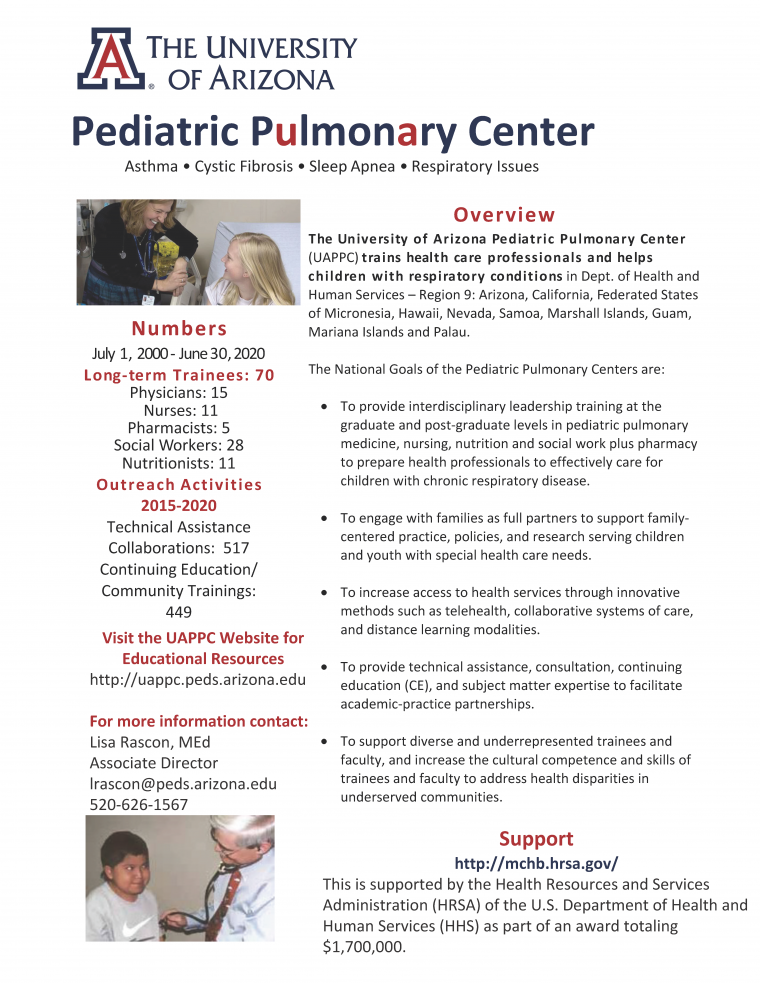About Us
The University of Arizona Pediatric Pulmonary Center (UAPPC) is part of a national network of health care training programs funded by the Maternal and Child Health Bureau (MCHB) of the Health Resources and Services Administration (HRSA) to enhance care for children with chronic pulmonary diseases such as asthma, neuromuscular diseases, and cystic fibrosis.
Established in 2000, the UAPPC is focused on building the capacity of health care providers to serve children with special health care needs throughout HRSA Region IX, which includes Arizona, California, Hawaii, Nevada, and numerous Pacific Ocean island communities.
The UAPPC seeks to build the skills of a broad range of health care providers – doctors, nurses, pharmacists, social workers and nutritionists – to care for these children and their families in a coordinated, interdisciplinary manner. The Center’s faculty provides academic and clinical training to advanced degree health sciences students, in-service education to medical professionals throughout Region IX, and skill-building support to parents of children with special health care needs
All MCHB training programs aim to promote comprehensive, coordinated, family centered, and serve the needs of all families within their communities.
We recognize the value and richness added to our traineeship and patient care when our team and trainees are individuals with various life experiences.
We work diligently to create an environment in which our faculty, trainees, and patients feel safe, empowered, and supported to reach their full potential.
National Goals of the Pediatric Pulmonary Centers
- To provide interdisciplinary leadership training at the graduate and post-graduate levels in pediatric pulmonary medicine, nursing, nutrition and social work plus pharmacy to prepare health professionals to effectively care for children with chronic respiratory disease.
- To engage with families as full partners to support family-centered practice, policies, and research serving children and youth with special health care needs.
- To increase access to health services through innovative methods such as telehealth, collaborative systems of care, and distance learning modalities.
- To provide technical assistance, consultation, continuing education (CE), and subject matter expertise to facilitate academic-practice partnerships.
- To support trainees and faculty, and increase the skills of trainees and faculty to address health issues in all communities.


